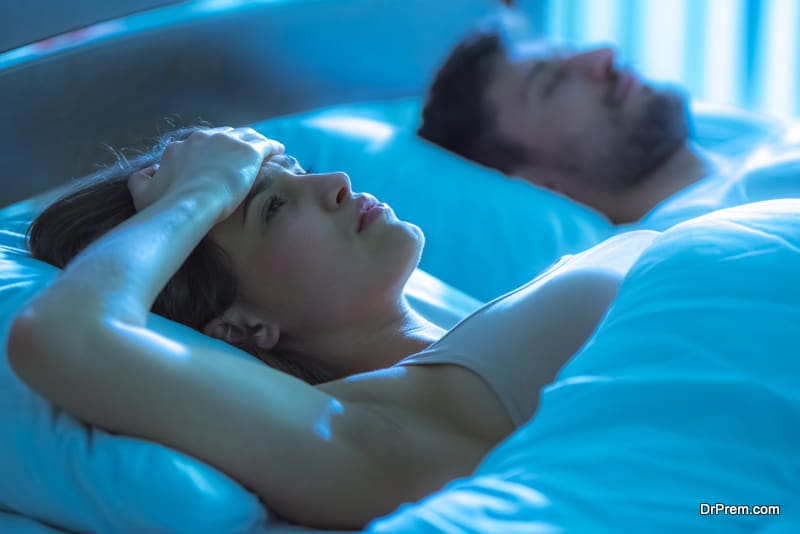Someone has rightly said, ‘Good sleep is the golden key to better health and well-being.’ Whether it is physical or mental health, sleep significantly impacts all the integral aspects. However, with life becoming more stressful and following a fast pace, sleep is becoming a luxury for the present generation.
In fact, you can find many people boasting about not being able to complete their required sleep cycle. What they do not understand is that lack of sleep can have adverse effects on their overall health, especially mental health.
Also, there is a closed cycle between sleep and mental well-being. When you are suffering from a mental health issue, you cannot sleep well, and vice versa. Also, lack of sleep can lead to different kinds of diseases, such as cardiovascular issues and even diabetes. So, what to do in this situation?
The need remains to study the different characteristics of the strong connection between sleep and mental health and get to know relevant solutions for getting a good night’s sleep. You can also browse websites such as SweetIslandDreams.com to learn about sleep disorders.
Why is the Connection Between Sleep and Mental Health Important?
The manner in which sleep and mental health are interrelated has given rise to many factual facts about how sleep deprivation can lead to mental health issues. Let us walk through some neurological conditions that can arise from lack of sleep.
1. Anxiety Disorders
Anxiety disorders are soon becoming a common mental issue affecting the present-day generation. Panic attacks, social anxiety disorders, post-traumatic stress disorders, and obsessive-compulsive disorders are some forms of this disease.
As per experts, lack of sleep or sleeping disorders substantially impact these anxiety disorders and vice versa. The main symptoms of anxiety disorders are worry and fear, which lead to a state of hyperarousal among humans.
Hyperarousal is a state of mind where overthinking leads to various issues, including insomnia. In addition to these anxiety issues, when a person cannot sleep peacefully, it becomes a state of worry.
In fact, there have been studies that have shown people who have PTSD to have sleep disorders for sure. PTSD is a condition where patients often get nightmares, can be seen repeating negative thoughts in their minds, and always try to be in a state of alertness. This leads to extra pressure on their minds, eventually leading to sleep problems.
2. Brain Fog
As the name suggests, brain fog is a condition where a person always seems confused or has trouble concentrating on things. Now, being unable to sleep is a significant cause of causing brain fog among people.
Even during regular days, when you cannot sleep during the night, you may observe that you face difficulties remembering some words when required or not being able to recall certain things. This hampers your productivity as even the simplest tasks may seem difficult when you suffer from brain fog.
Since the brain is like the master machinery of your body and is responsible for processing different emotions, events, and emotions, its proper functioning is quite essential. A good sleep cycle also helps maintain the function of these stimuli.
3. Depression
Depression is becoming the new talk of the town when it comes to prominent mental issues. As per studies, about about 75 percent of people who suffer from depression also portray lack of sleep as a significant symptom, while many patients also talk about disruption of sleep. They sleep during the day while staying awake during the night.
Thus, sleeping issues are considered to be a consequence of depression and vice versa, thus creating a toxic cycle. In fact, experts have deduced from their studies that lack of sleep can not only induce but also increase the symptoms of depression. However, this has also helped medical practitioners focus on sleep issues as an effective treatment for depression.
4. Stress-Related Issues
Stress is also a prominent mental issue symptom, and insomnia has a significant effect on inducing stress as well. When you face problems sleeping, it increases your stress levels, and excess stress can lead to frustration and depression.
Imagine a day of a heavy workload at work, fighting with your boss, facing a long commute jam, and at the end of the day, being unable to sleep properly. This would definitely lead to medical problems, such as headaches, panic attacks, difficulties in concentration, and extreme cases resulting in depression.
5. Seasonal Affective Disorder
The seasonal affective disorder is a form of depression that becomes prominent when daylight hours reduce. Thus, people who live in extremely cold conditions suffer from the extreme seasonal affective disorder.
Now, this form of depression is closely related to circadian rhythm, a process that controls multiple body functions, for example, sleep. Thus, people who are suffering from this kind of depression either sleep too much or suffer from lack of sleep. This, again, leads to increased frustrations, stress levels, and a high irritability quotient.
Final Words
Sleep is an essential aspect of human life, and blessed are those people who enjoy a balanced sleep cycle. However, lack of sleep or a disruptive sleep cycle can have a hazardous effect on both your physical and mental health. In fact, a powerful connection exists between getting good sleep and managing better mental health.
Any loophole in this connection may hamper both aspects, your sleep and mental health as well. Thus, the need remains to make efforts to understand this connection well and look for practical solutions if any thread remains loose. Happy sleeping!
Article Submitted By Community Writer




